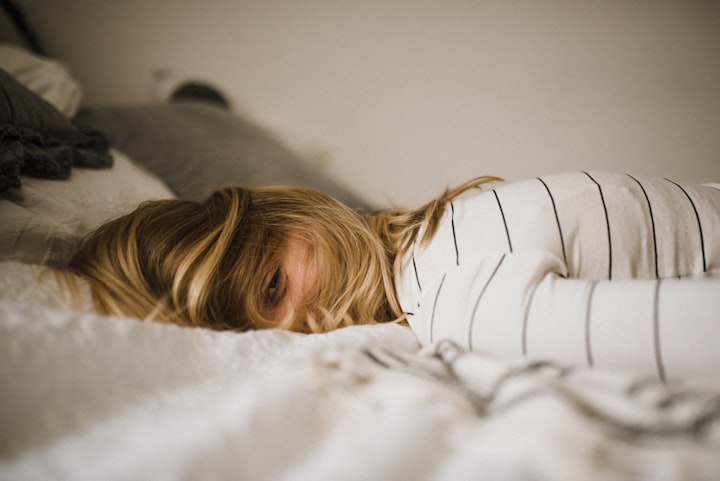Broken Sleep
Bad effect of broken sleep

Researchers have discovered that experiencing two nights of disrupted sleep can lead individuals to feel significantly older, with psychologists in Sweden revealing that volunteers felt over four years older after being limited to just four hours of sleep for two nights in a row. This highlights the importance of consistent and restful sleep in preventing individuals from feeling older than their actual age.
Dr. Leonie Balter, a psychoneuroimmunologist at the Karolinska Institute in Stockholm and the primary author of the study, emphasized the significant influence of sleep on one's perceived age. Notably, the impact is not limited to long-term sleep patterns. Even a mere two nights of insufficient sleep can have a tangible effect on an individual's overall well-being. Conversely, the study revealed that allowing people to stay in bed for nine hours resulted in a more modest but still noticeable effect. Participants reported feeling, on average, three months younger than their actual age after experiencing ample rest.
According to Balter, the perception of being significantly older can have a detrimental impact on people's health. This can lead to unhealthy eating habits, decreased physical activity, and a reluctance to socialize and explore new experiences. The researchers conducted two studies to investigate this further. In the first study, 429 individuals between the ages of 18 and 70 were asked about their perceived age and the frequency of experiencing poor sleep in the past month. Their level of sleepiness was also assessed using a standard scale commonly used in psychological research.
The scientists discovered that for every day of inadequate sleep, the volunteers experienced an average increase in perceived age of three months. Conversely, those who reported no restless nights in the previous month felt nearly six years younger than their actual age. However, it remained unclear whether poor sleep caused individuals to feel older or if feeling older led to poor sleep.
In the second study, the researchers interviewed 186 volunteers between the ages of 18 and 46 about their perceived age after two nights of sufficient sleep, during which they slept for nine hours each night, and two nights of limited sleep, where they only slept for four hours per night. Following the two nights of restricted sleep, the participants felt an average of 4.44 years older compared to when they had ample sleep. Not surprisingly, feeling older was strongly associated with feeling more tired.
According to Balter, the key to feeling youthful is to prioritize and safeguard your sleep.
In the Proceedings of the Royal Society B, the psychologists have outlined the variations in individuals' responses to sleep deprivation based on their preference for morning or evening activities. According to the study, individuals who identify as evening types tend to feel older than their actual age, even after obtaining sufficient sleep. On the other hand, morning types experience a greater impact on their perceived age when their sleep is disrupted.
Balter suggests that these findings, once validated, could have practical implications. She emphasizes the significance of recognizing the malleability of subjective age. By making individuals feel younger, they may potentially reap the associated benefits, such as being more open to new experiences and engaging in social and physical activities.
Dr. Serena Sabatini, a psychologist from the University of Surrey, who was not part of the study, described the findings as "encouraging." She emphasized the importance of examining if these findings are consistent in older individuals in upcoming research.
"It is crucial to also delve into the long-term effects of these mechanisms," she stated. "While this study highlights the immediate impact of poor sleep on our emotions, it is essential to understand the cumulative effects over extended periods of time."
Dr. Iuliana Hartescu, a senior lecturer in psychology at Loughborough University, emphasized the significance of sleep quality in relation to long-term health. She highlighted that insufficient or poor sleep can have a profound impact on lifestyle behaviors that ultimately affect overall health. Unlike the effects of poor diet and low physical activity, which may take time to become noticeable, the consequences of a night of poor sleep are immediate and can influence all other 24-hour lifestyle behaviors.
In a separate study, involving over 4,000 Europeans over a span of 10 years, it was discovered that individuals who consistently engaged in physical exercise two to three times a week were significantly less likely to experience insomnia compared to those who were inactive. Furthermore, these active individuals were better able to achieve the recommended six to nine hours of sleep each night.
The team of international researchers examined surveys from participants in the European community respiratory health survey regarding their exercise routines, quality and duration of sleep, and daytime drowsiness. Over the course of ten years, volunteers from 21 locations in nine countries were monitored.
According to the study, individuals who engaged in physical activity two or more times per week, for at least an hour each time, were 42% less likely to experience difficulties falling asleep compared to those who were inactive. Additionally, they were 55% more likely to be considered as "normal sleepers" who achieved a sufficient amount of sleep each night.
The authors of the study, published in BMJ Open, highlight the significance of maintaining regular physical activity over an extended period of time, as it appears to play a crucial role in enhancing sleep quality and reducing insomnia symptoms.
About the Creator
Tahmid Islam
I love this site and i want people learn good thins with me.






Comments
There are no comments for this story
Be the first to respond and start the conversation.